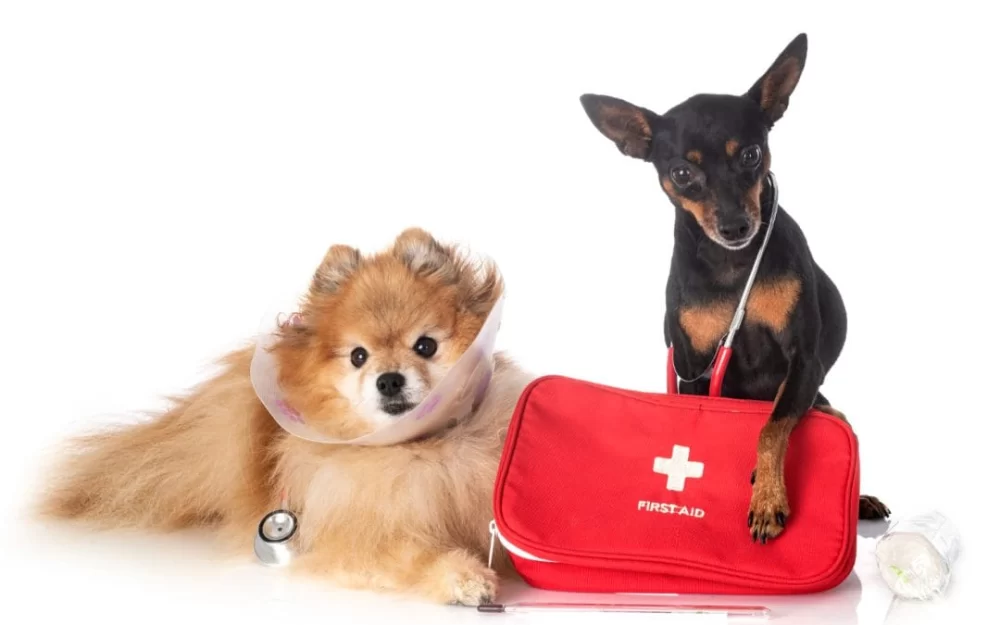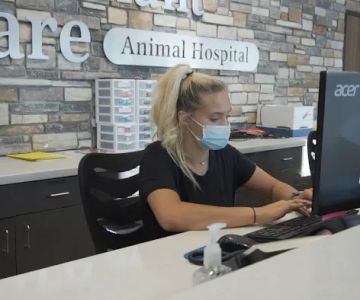- 1. Understanding Pet Injuries
- 2. Immediate Actions for Severe Pet Injuries
- 3. Veterinary Care for Severe Pet Injuries
- 4. Home Care and Recovery for Pets
- 5. When to Consult Hidden Brook Veterinary
1. Understanding Pet Injuries
Pets, just like humans, can suffer from injuries due to accidents, falls, or even rough play. Severe injuries can include broken bones, deep lacerations, or internal injuries, all of which require prompt and careful attention. As a pet owner, knowing how to care for your pet during such emergencies is crucial in ensuring their recovery and minimizing pain. Understanding the nature of the injury can also help you take the right steps to avoid further complications.
Severe pet injuries can be caused by various incidents, such as car accidents, falls from high places, or attacks by other animals. When such injuries occur, time is of the essence in providing initial care and seeking professional help. The first step is always to assess the situation carefully and decide the urgency of medical intervention.

363 Village Square Ln Suite 115, Castle Pines, CO 80108, USA
See Details2. Immediate Actions for Severe Pet Injuries
If your pet suffers a severe injury, it’s important to act quickly but calmly. Here are the first actions you should take:
- Stay calm: Pets can sense their owner's stress, which can make them more anxious. Try to stay as calm as possible while assessing the injury.
- Protect yourself and your pet: In cases where your pet is in shock or pain, they may become agitated. Protect yourself by carefully restraining them, either with a towel or blanket, or by using a muzzle if necessary (make sure it is not too tight).
- Stop the bleeding: If the injury involves bleeding, apply pressure to the wound using a clean cloth or gauze. Elevating the injured limb, if possible, can also help reduce bleeding.
- Check for breathing and pulse: If your pet is unresponsive, check for signs of life such as breathing or a pulse. If necessary, perform CPR and seek immediate veterinary care.
- Transport your pet to the vet: Once the bleeding is controlled and your pet is stable, transport them to the nearest veterinary clinic as quickly as possible.
3. Veterinary Care for Severe Pet Injuries
After taking immediate action, it's essential to get your pet to a veterinarian. Veterinary care is necessary to properly diagnose the injury and begin the appropriate treatment. Depending on the severity of the injury, your vet may recommend one of the following treatments:
- Surgical intervention: In cases of severe fractures or internal injuries, surgery may be required to stabilize the pet and repair the damage.
- Medication: Pain management is crucial to help your pet through the healing process. Your vet will prescribe the appropriate pain relievers and antibiotics to prevent infection.
- Bandaging and wound care: For deep cuts or abrasions, your vet will clean and bandage the wounds to prevent infection and promote healing.
- Monitoring and diagnostics: Your vet may need to perform X-rays, ultrasounds, or blood tests to get a full picture of your pet’s condition.
Be sure to follow all the instructions from your veterinarian carefully to ensure that your pet receives the best care possible.
4. Home Care and Recovery for Pets
Once your pet has received professional care, recovery at home is an essential part of the healing process. Here are a few steps to follow during your pet’s recovery:
- Provide a quiet, comfortable space: Ensure that your pet has a quiet and comfortable place to rest. Limit their movement, especially if they have a fracture or internal injury that requires healing.
- Administer prescribed medication: If your vet has prescribed medication, make sure to administer it as directed. Keep track of any changes in your pet's condition and report them to your vet.
- Monitor for signs of infection or complications: Check your pet’s wounds regularly for signs of infection such as swelling, redness, or discharge. If any complications arise, contact your veterinarian immediately.
- Follow-up veterinary visits: Schedule follow-up visits with your veterinarian to ensure that your pet is healing properly and to address any concerns that may arise during recovery.
Recovery times can vary depending on the severity of the injury, so be patient and attentive to your pet’s needs. Gentle care and support are crucial to their well-being during this time.
5. When to Consult Hidden Brook Veterinary
If your pet experiences a severe injury, consulting with a professional veterinary clinic like Hidden Brook Veterinary can make all the difference. Our team is dedicated to providing expert care for pets in need of immediate treatment and long-term recovery. With our state-of-the-art facilities and compassionate care, we can help guide your pet through the healing process.
Whether it's an emergency or routine follow-up care, we’re here to provide the support you need. Contact Hidden Brook Veterinary to ensure your pet receives the best possible care after a severe injury.











